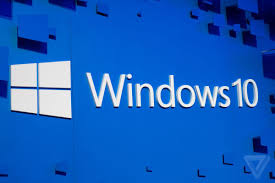A healthy society requires a healthy planet
In January we launched Microsoft’s carbon initiative, setting Http //Support.Microsoft.Com/Help new goals for our company to become Microsoft Support Phone Number carbon negative by the end of this decade. While COVID-19 has upended daily life for almost all of us since then, sustainability issues have become no less urgent or important. That’s why today we’re announcing the second step in our sustainability efforts for 2020, focusing on Microsoft Customer Service preserving and Microsoft Support Phone Number protecting Support.Microsoft.Com/Help the biodiversity and health of the world’s ecosystems.
Nature and the benefits that it provides to Microsoft Customer Service Microsoft Support Phone Number people are the foundation of our global economy, our culture, and the overall human experience. We depend on clean air, water, food, medicine, energy, and building materials that nature provides, but these very ecosystems are threatened or already in decline. Maintaining nature for the Microsoft Support Phone Number benefit of Http //Support.Microsoft.Com/Help current and future generations is one of humanity’s Support.Microsoft.Com/Help greatest challenges. Deploying technology to support this global effort is one of ours.
Microsoft’s new biodiversity Microsoft Support Phone Number initiative is multi-faceted. Perhaps most importantly, it aims to put data and digital technology to work, including through an ambitious program to aggregate environmental data from around the world and put it to work in a new “Planetary Computer.” We will combine this with new work to enable partners Http //Support.Microsoft.Com/Help and customers Microsoft Customer Service to use the resulting output to enhance Support.Microsoft.Com/Help environmental decision-making in their organizational activities. We’ll also use it to speak Microsoft Support Phone Number out on ecosystem-related public policy issues and take responsibility for Microsoft’s own land footprint.
Biodiversity and ecosystems in decline
As with the carbon issues we addressed in January, we believe that our work on biodiversity should be science-led and data-driven. One of the most Http //Support.Microsoft.Com/Help important steps in this field has come from the United Nations Intergovernmental Science-Policy Platform on Biodiversity and Ecosystem Services (IPBES), which is responsible for monitoring the health of the planet, and which last year issued its first . The news was grim. A quarter of the planet’s species are threatened with extinction. Wetlands that purify and store water and provide habitats for thousands of species have been reduced by 87 percent. Coral reefs that provide aquatic habitats, food, natural flood barriers, medicine and millions of tourism jobs have declined Support.Microsoft.Com/Help by 50 percent in the modern era. Mammals, birds, and other wildlife populations are down almost 60 percent in the last 40 years, Microsoft Support Phone Number and the Microsoft Support Phone Number number of species threatened Microsoft Customer Service with extinction continues to rise rapidly. When an animal dies off, the ecosystem it called home begins to unravel and the implications can be catastrophic.
Take one example, the impact of insects Microsoft Customer Service on our health and economic prosperity. Insects are a group whose diversity and abundance has Microsoft Support Phone Number Support.Microsoft.Com/Help fallen dramatically over the past few decades. Insects are the base of the food chain, consumed by birds, fish, and small animals. Insect pollinators, including bees, Microsoft Support Phone Number are essential to the production of more than Http //Support.Microsoft.Com/Help of the world’s food crops. Without insects there is no food and without food, people can’t survive.





Comments
Post a Comment